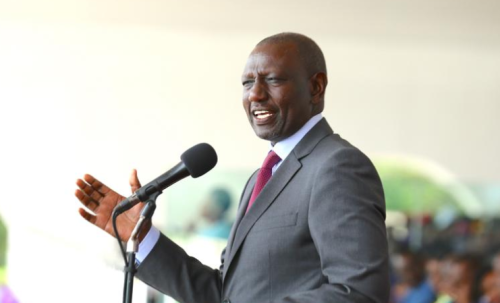Following widespread public outcry, President Ruto of Kenya has taken decisive steps towards fiscal responsibility by withdrawing the controversial Finance Bill 2024. This move comes amidst a call for greater transparency and accountability from the government, spearheaded by demands from Kenyan citizens for sweeping reforms across various sectors.
Central to President Ruto’s address was a commitment to engage with the youth, promising to listen to their concerns and integrate their voices into policy-making. He outlined stringent measures aimed at reducing government expenditure, starting with significant cuts within the Executive Office of the President. Operational costs, including allocations for the “confidential vote,” travel budgets, hospitality expenses, vehicle purchases, and unnecessary renovations, are all set to be slashed.
However, despite these directives, the Kenyan populace has articulated specific changes they wish to see implemented promptly. Foremost among these demands is the degazetting and defunding of the Office of the Prime Cabinet Secretary and their spouse, alongside the removal of similar offices of Chief Administrative Secretaries (CAS). Calls for immediate defunding and comprehensive financial accountability for the spouses of the President and Deputy President since their election underscore a growing sentiment for financial transparency.
Moreover, there is a resounding call for disclosure regarding the items covered under the “confidential expenditure,” urging that such expenditures be openly accounted for in future budgets. Concerns also extend to the functionality of Kenya’s eCitizen platform, with demands to streamline its operations and address centralization issues that compromise service delivery at the county level.
The public scrutiny further extends beyond governmental bodies to include religious institutions. A recent incident involving the abduction of Kasmuel MCoure, an SDA member, highlighted a perceived disconnect between legal support and the priorities of religious structures. Criticism has been directed towards the SDA church’s legal group, where no volunteers stepped forward to offer legal assistance. This incident has sparked broader calls for religious organizations to redefine their priorities and operational structures to better serve their communities.
Kenya stands at a pivotal moment where citizens are actively demanding accountability, efficiency, and equitable distribution of resources across all sectors. The government’s responsiveness to these demands will likely shape its credibility and effectiveness in meeting the needs of its people. As calls for reform intensify, the trajectory of Kenya’s governance and societal development hinges significantly on how these demands are met and translated into tangible actions for the benefit of all citizens.

















